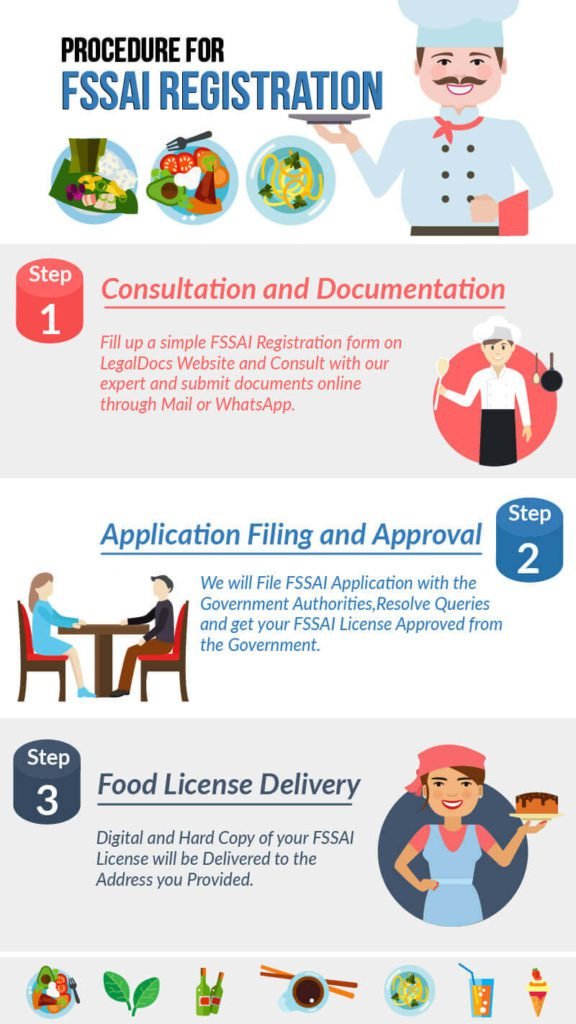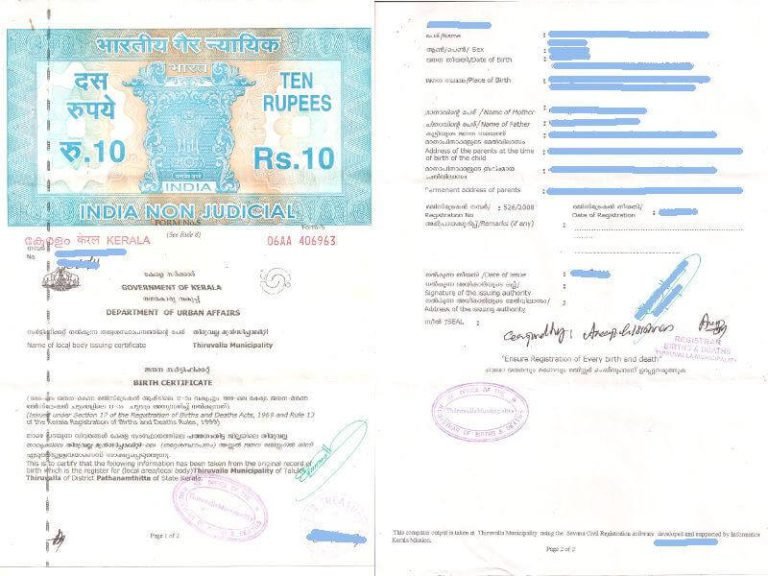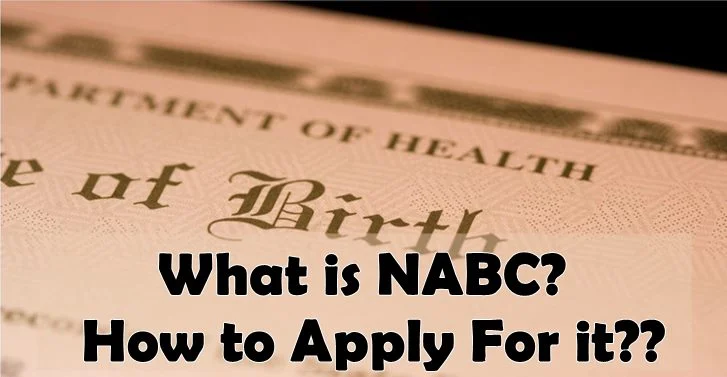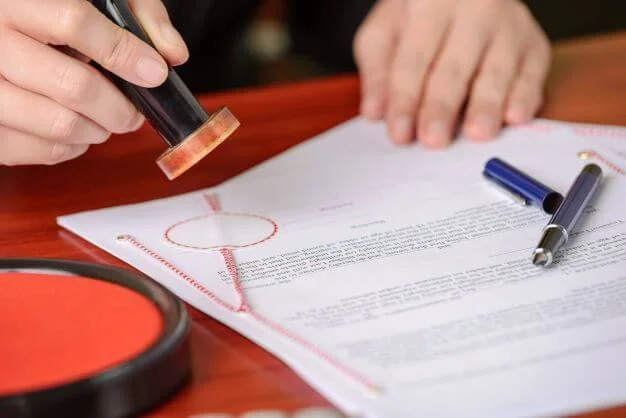FSSAI Registration
An individual's yearly income is verified by obtaining an income certificate, which is an essential document in India. State residents need an income certificate in order to participate in any federal or state welfare program. LeagalDcos Advisor is where you may go to get help for your income certificate application from your state goverment.
Easy Process and Documentation
Required Paperwork
- Government of the Central/State issued photo ID proof.
- Address proof issued from Central /state government.
- Passport-size colour photograph.
- Ration card (BPL) or National Food Security Card. (if applicable)
- Signed self-declaration from applicant/head of family.
Process, Service Charges, Time duration
- When you send us your paperwork, our experienced staff will review your paperwork with local government officials to determine the service’s cost, feasibility, and completion date. After a quote has been given, it remains fixed. Location affects project duration and cost. Send us your documents and specific requirements to get a price and turnaround estimate.
- On an average Procurement takes four to six weeks.
2000+ locations Served
Happy Clients 50000+
Averge Google Rating 4.9
India's Most Trusted Legal Documentation Portal
WHAT IS THE FULL FORM OF FOSCOS FSSAI OR WHAT DOES FSSAI MEAN?
WHAT IS FSSAI (FOOD LICENCE) REGISTRATION?
The Food Safety and Standards Authority of India (FSSAI) is an independent organisation that was set up under the Ministry of Health and Family Welfare of the Indian government. In India, the Food Safety and Standards Act of 2006 is the statute that led to the establishment of the Food Safety and Standards Authority of India (FSSAI). This law is a comprehensive piece of legislation concerning food safety and regulation in India. It is an organisation that is responsible for regulating and controlling the food industry in India. The Food Safety and Security Act of 2011 (FSSAI Licence) was created to preserve and promote public health by regulating and supervising the food industry.
Before beginning any kind of food company, you are required to get an FSSAI Licence or FSSAI Registration. FSSAI Registration is required for all food related businesses such as manufacturers, traders, restaurants, small eateries, grocery shop, importers, exporters, home based food businesses, dairy farms, processors, retailers and e-tailers. Those who are involved in the food business must obtain a 14-digit registration number or a food licence number, which must be printed on food packages or displayed in premises. This 14-digit FSSAI licence number provides information on the assembling state as well as the producer’s permit or enrollment specifics.
WHAT IS FSSAI FOSCOS?
The Food Licencing and Registration System that was previously in use was replaced by the Food Safety Compliance System (FoSCoS) that was established by FSSAI on June 1, 2020. The previous online Food Licencing and Registration System (FLRS; https://foodlicensing.fssai.gov.in) has been replaced with this system. Users in these states and union territories are needed to go to https://foscos.fssai.gov.in as of right now. Outdated technology was used in the construction of the FLRS, and there was no longer any access to technical assistance. As a result, the transition from FLRS to FoSCoS was required to take place.
In order to operate a company involving food products, one has to possess a Food Licence Registration certificate. In order to produce, distribute, or transport food items in India, you are required to get registered with the Food Safety and Standards Authority of India (FSSAI). The Food Safety and Standards Authority of India (FSSAI) is a government agency that operates under the Ministry of Health and Family Welfare. In accordance with the Food Safety and Standards Act of 2006, the Food and Drug Administration has been formed. Both the FSSAI Certificate and the FSSAI Licence accomplish the same goal, which is to provide assurance to consumers about the product’s quality, purity, and other significant characteristics.
Food business operators (FBOs) may take use of the licencing, registration, inspection, and yearly return modules that are available via the FoSCoS. All FBOs may complete any transaction relating to regulatory compliance in a single location there.
PROCEDURE FOR FSSAI REGISTRATION
- Documentation and consultation
Fill out a straightforward registration form on the LegalDocs website for the Food Safety and Standards Authority of India (FSSAI), talk to one of our specialists, and then send in your papers electronically through mail or Whatsapp. - Application Submission and Approval
We will take care of submitting your FSSAI application to the appropriate authorities in the government, resolving any problems that may arise, and obtaining approval for your FSSAI licence from the government.
Food License DeliveryBoth an electronic and a physical copy of your fssai licence will be sent to the address that you specified.

HOW MUCH DOES FSSAI REGISTRATION COST?
The Food Safety and Standards (Licencing and Registration of Food Businesses) Regulations, 2011, set out rules for how the fees for Food Business Operators should be set.
Food businesses in India are needed to get FSSAI licencing, and if they don’t, they may have to pay a fine.
FSSAI Registration Fee is split into two parts: government cost and expert expense. Formally, the government charges a fee for handling the application, and an expert fee is charged by the professional to set up your application.
There are three different types of FSSAI registration: Basic registration, State registration, and Central registration. The FSSAI fees for these forms are listed below:
1) Basic FoSCoS FSSAI Licence Fees:
Annual sales below 12 lakhs is 100/- per year
2) State FoSCoS FSSAI Licence – Fees
Annual sales of over 12 lakhs but less than 20 crores: 2000/- or 5000/- per year
3) Central FoSCoS FSSAI Licence Fees: Annual sales over 20 crores: 7,500/- per year
STEPS FOR FSSAI LICENCE QUICKLY
- Consultation
Get a free FSSAI Licence advice from our experts - Documents
You can upload documents online from anywhere at any time - Approval
Online approval is easy and safe - Delivery
Get your food license/certificate at your house
DOCUMENTS REQUIRED FOR FSSAI REGISTRATION
| Passport Photo | Address Prof |
| List Of Food Category | Photo Id Prof |
| Blue Print/ layout Plan | List of equipments |
| NOC From Municipality | Incorporation Certificate |
| List Of Directors /Partners | MOA And AOA |
| Water Test Report | Import Export Code |
HOW DO I APPLY FOR FSSAI REGISTRATION?
The application for FSSAI Registration may be submitted online, but it is always necessary for the expert to present your application. The application process for the FSSAI has been broken down into the following steps.
1) The first step in the FSSAI registration process is to provide the food and safety office with a completed Form A (application).
2) The Department has seven days from the day the application was submitted to either accept or reject this application. If the department chooses to reject the application, the candidate is required to be notified in writing of this fact.
3) If the application is accepted, the department will then authorise a registration authentication with a picture of the applicant along with their enlistment number. This authentication will be sent to the candidate’s email address.
WHAT ARE THE BENEFITS OF OBTAINING A FSSAI FOOD LICENCE?
- Several laws are good for the food business.
- makes people aware of something
- You can use the FSSAI badge, which can make buyers feel good about your business.
- Set down rules based on science.
- Control how food is made, stored, distributed, sold, and brought in.
- To make sure food is safe
- The safety of the world is up to the research and development business.
- There are new rules that are in line with foreign organisations.
- Building rules should be based on studies that show there is proof.
- There is a great chance that the business will grow. FSSAI is also in charge of setting up procedures and standards for notifying ISO17025-accredited labs for quality certification.
WHAT ARE THE DIFFERENT KINDS OF FSSAI LICENCES?
The three licences are different because of the size of the food business that is being run. Here is more information about each of the three food licences.
Simple FSSAI FoSCoS Registration
If a food business makes less than Rs. 12 lakh a year, it needs to do simple registering and licencing. When someone is starting a business and doesn’t know how much money they will make, they usually get a basic food safety registration. If they make more than Rs. 12 Lakh, they can get a state licence.
Basic FSSAI registration is required for any dairy business that makes less than 500 litres of milk per day or less than 100 kg of milk per day. This includes small shops, tea stalls, home-based food operators, small warehouses, canteens, midday meal services, and food processors. The most time you can have this licence is 5 years, and the least time you can have it is 1 year.
Licence issued by the State FoSCoS FSSAI
If your food business makes more than Rs. 12 lakhs but less than Rs. 20 crores a year, you need an FSSAI licence from the state.
Manufacturing units that can make up to 2 MT per day, Dairy units that can sell up to 50000 litres per day, 3 star hotels and above, repackers and relabeling units, club canteens and all food businesses, no matter how much money they make, need to apply for a State licence. The most time you can have this licence is 5 years, and the least time you can have it is 1 year.
FSSAI Central FoSCoS Licence
If the yearly revenue of the food company is higher than 20 Crores, then the food firm has to have a central FSSAI Licence.
If you own a company that operates multiple locations across the country, you are required to obtain a central licence for your registered address and either a basic state licence or a central licence, depending on the amount of revenue generated by each of your locations. Importers and exporters are also required to have a central licence. This licence has a maximum validity period of five years, and the bare minimum is one year.
REGISTRATION FORM FOR FSSAI
The types of reports that are required by the FSSAI for a Food Licence are determined by the kind of registration that is needed, such as the Simple Registration Form A or the Food Licence Form B. Your annual turnover will determine which of the two tax forms—Form A or Form B—you are required to file at this time.
Form A of the FSSAI Registration Application
When a small FBO’s annual revenue is less than 12 lakhs, the Small FBO Basic FSSAI Registration Form A has to be submitted.
Form B of the FSSAI Registration Application
When the food unit’s annual sales is less than 20 crores and its area of operation is restricted to the state exclusively, the food unit is required to submit form B of the State FSSAI Licence. The state government is the one who hands it out.
When a food unit’s annual revenue is more than 20 crores, the business is required to submit a Central FSSAI Licence structure B application. The Central Government of India is the entity that provides it.
VALIDITY OF FSSAI LICENCE
The FSSAI licence is good for anywhere from 1 to 5 years, depending on how long the food controller wants it to be good for. The cost of the pass goes up anyway based on how many years he has signed up for. According to the rules of the FSSAI, the owner of a food business has 30 days to apply for a new licence before the old one runs out. Any FSSAI Renewal Application that is sent in after the deadline will be charged a late fee of Rs.100 per day.
RENEWAL OF FSSAI
Before beginning a food company in India, every operator of a food business must first get an FSSAI registration and a food licence. It is equally essential to renew one’s FSSAI Licence before the allotted time period has passed or before the licence itself expires.
The validity period of the food licence that is granted to the operator of the food company may range anywhere from one year to five years. The costs required to register with the FSSAI change depending on how long a licence is valid. Each operator of a food company is required to submit an application for FSSAI renewal thirty days before to the expiration of the food licence that they now have, as stipulated by the guidelines established by the FSSAI.
Penalty on FSSAI Licence Renewal: If the application for FSSAI Licence (state and Central) renewal isn’t recorded in the given period, then a punishment of Rs. 100 per day will be imposed for FSSAI Licences.
Penalty on FSSAI Registration Renewal: If the Renewal of Food registration isn’t done within the required period, then it will be seen as a gap, and the food company operator will need to apply for a new licence in order to continue the business further.
The Licence or FSSAI registration will continue to be valid until the period specified on the FSSAI renewal application has elapsed. This time must be at least 30 days after the day that the FSSAI licence was set to expire.
ADVICE FOR FSSAI LICENCE RENEWAL
- The Food Licence given to the FBO will be put in the Renewal Bin 120 days before it expires. When an FBO’s licence is in the renewing bin, they need to submit a renewed application.
- If there is a delay, the Food Business Operator will be charged 100 per day.
- If you don’t renew your FSSAI or food licence, you could get punished.
- The increase of the renewal is also from 1 to 5 years. The cost of renewal will also go up depending on how long the extension is for.
WHAT IS THE FOOD AND SAFETY DEPARTMENT OR REGISTRATION?
Food Licencing and Registration System (FLRS) is an online programme that FSSAI made so that food business owners can apply for an FSSAI licence online. FSSAI’s five Regional Offices in New Delhi for the Northern Region, Kolkata for the Eastern Region, Guwahati for the North Eastern Region, Mumbai for the Western Region, and Kerala for the Southern Region all use this Food Licencing and Registration System. And in Chennai, a group called Food Business Operators (FBO) is in charge of giving out licences and signing people up. FLRS checks whether a food-related business is eligible based on its business area and the type of process the business owner has identified.
FSSAI PRICING DETAILS
BASIC REGISTRATION
3000+
All prices in Rupee.
STATE REGISTRATION
10000+
All prices in Rupee.
CENTERAL REGISTRATION
17000+
All prices in Rupee.
WHAT IS INCLUDED IN OUR PACKAGE
WHAT COMES WITH OUR PACKAGE?
| Consultation with experts | Creating Documents |
| Application | Continued Contact With the Authorities |
| Delivery of Certificate | Consultation for Renewal |
FSSAI LICENCE NUMBER GUIDELINES
- The FSSAI logo and licence number must be printed on the food package marking in a colour that stands out from the background.
- If there are more than one unit (maker, packer, relabeler, or seller), the FSSAI logo and licence number of the brand owner must be on the food package label. On the sticker, the names of the different units should include the FSSAI licence number.
- When importing food, the importer must include the FSSAI logo, the FSSAI licence number, and the importer’s name and address. These can be pre-printed on the label or put on with a sticker before going through customs.
- The Food Safety and Standards (Packaging and Labelling) Regulation, 2011 says that the height of the letters and numbers in the licence number must be the same as what is written in 2.3.3.
- The Food Safety and Standards (Packaging and Labelling) Regulations, 2011, section 2.6.1, says that the FSSAI Licence number and logo must be shown.
- The FSSAI badge on a food product’s wrapper is not a sign of approval, but it does show that the food business operator has a legal licence under the Food Safety and Standards Act of 2006.
PDF of How to Pack and Package Food:
WHO REQUIRES AN FSSAI LICENCE?
According to the Food Safety Standard Act, every food industry operator need an FSSAI licence.
Who needs FSSAI License
| Dairy farms | Unit for processing vegetable oil |
| Slaughtering units | Processing plant for meat |
| Every food processor, including relabelers and repackers | Storage (Except (Except in a controlled environment) |
| Cold/refrigerated storage | Cold and controlled storage |
| Wholesaler | Retailer |
| Distributor | Supplier |
| Food catering, Dhaba | The Club/Canteen |
| Hotel | Restaurant |
| Transporter | Marketer |
WHY REGISTER FOR FSSAI LICENCE?
The Food Safety and Standards Authority of India (FSSAI) has made obtaining a licence from FSSAI necessary for all food business operators in India in order for them to be able to legally operate their businesses in India. The FSSAI Licence number, which consists of 14 digits and must be obtained by all food company operators, must be printed on the packaging of the product. The Food and Drug Administration and Industry Association (FSSAI) has made obtaining this licence mandatory in an effort to cut down on the practise of adulterating food and on the sale of subpar goods.
The FSSAI conducts regular audits of food company operators to verify that they have a valid food licence and takes stringent legal action against those firms whose licences have lapsed or that do not have an FSSAI licence.
The consumers’ faith in the reliability of the food industry’s standards for both quality and safety is very strong. It contributes to the advancement of innovation in the food industry. It is helpful in getting rid of many rules. It makes business easier without jeopardising the health and safety of consumers and gives everyone a greater slice of the pie.
KNOW THE DIFFERENT FSSAI REGISTRATION TYPES
According to FSSAI, every food business operator (FBO, as FSSAI calls them) must be registered. There are three different types of FSSAI Licence. Registration, State Licence, and Central Licence are the three types of licences. Getting a licence relies on two things: in the service industry, the income, and in the manufacturing or processing industry, the unit’s production ability. FSSAI has separated FBO (food business operators) into the following categories: dairy and dairy processing, Food manufacturers make and sell things like biscuits and ready-to-eat foods. Food processors like pickle and dry fruit makers also fall into this category. A retailer is any shop or business with a retail location in India. The same goes for wholesalers and distributors. Anyone who transports food needs to get a food licence. Storages and warehouses also need a food licence or registration.
First and foremost is FSSAI Basic Registration, under which 80–85% of businesses in India fall. For basic registration, a business must have a turnover of less than 12 lakhs or a dairy capacity of less than 500 litres per day or a manufacturing capacity of less than 100 kg per day. This includes a wide range of businesses, such as small shops, tea stands, home-based food operators, small warehouses, canteens, midday meal services, and food processors.
The second type of licence that is needed is an FSSAI State Licence. All food businesses, manufacturing units with a capacity of up to 2 MT per day, dairy units with a capacity of up to 50000 litres per day, 3 star hotels and above, repackers and relabeling units, club canteens, and all catering businesses, no matter how much money they make, need to apply for a State licence. Now, once the licence is made, you’ll get a certificate. If you work in the service industry, you’ll need to keep the licence on the grounds. If you work in the manufacturing and processing industry, you’ll need to put the licence number on your food products.
Now, businesses that don’t fit into the first two categories need to get an FSSAI Central Licence. Importers and exporters are required to get a central licence, and if you own a business with multiple locations across the country, you need to get a central licence for your registered address and either a basic state or central licence depending on how much money each location makes.
Register with FSSAI. Get help at your door quickly and without any trouble. LegaDocs is the best FSSAI licence expert for questions about FSSAI or food licences in India. Are you thinking about starting a food-related business but don’t know what rules you need to follow so that the government won’t get in your way? Well, LegalDocs is here to help you get the licences and registrations you need to start a food business.
HOW TO CHECK ONLINE FSSAI LICENCE NUMBER
Step 1
Enter your 14-digit FSSAI licence number
Step 2
Check Validity And Get Basic Information
Step 3
Enter Your Username and Password to Login
Step 4
Find Out More About Your Fssai Licence
FAQS
1. Go to the website for LegalDocsAdvisor.
2. Fill out the draught with the right information.
3. Send your papers to us by email.
4. The papers will be checked, and any questions will be answered in 2 business days.
5. The person who wants to get the paper will get it in 7 business days.
A. The basic FSSAI licence will be sent to you in 7 business days.
B. In 30 days, the state licence and the central licence will be given.
1. FSSAI registration (basic) – Rs 999/-
2. State FSSAI licence – Rs 15000/-
3. FSSAI Central Licence – Rs 20000/-
Please click here to see today’s deal.
2.It helps to promote innovation in foods products
3.It helps in removal of multiple regulations.
4.It facilitates trade without compromising consumer safety & a larger share.
2.Simple and quick licence issuance with a one-month time period.
3.There is no need for a licence for small FBOs; just registration is required.
4.This statute protects consumer safety and fair recompense to victims in the event of harm or death.
-> If Food Business Operator is operating in more than 1 state, one additional Central License for Head Office is necessary.
-> Importers are allowed to take one single central license at their Import Export Code address.
-> One presumption with various types of businesses is eligible for one registration only.
-> Food Business Operator must obey the rules and conditions of registration.
Step.1. Consultation and Documentation.
Our FSSAI professional will assist you with Registration Type, Eligibility, and Documentation.
->1 to 2 days.
Step 2. Application Filing and Approval.
You relax while focusing on your business. We will assiduously work on your application and register you as quickly as possible.
->3 To 4 days.
Step 3. LICENCE DELIVERY
Digital and Physical Licence Copies are Delivered to Your Place of Business.
->5 to 7 days.
The Food Safety and Security Act of 2006 is a law, and under it, FSSAI was made. This law sets scientific standards for food goods and controls their production, storage, transport, sales, and imports. Its main goal was to keep food quality at a certain level and stop food from being tampered with or not being up to par.
(i) setting standards for food based on science
(ii) regulating how food is made, stored, distributed, sold, and imported
(iii) making sure food is safe.













